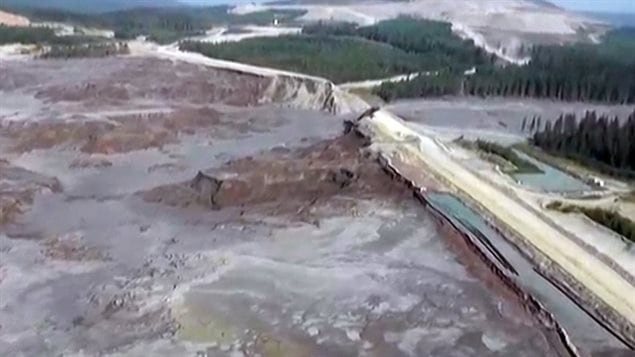Hundreds of people in British Columbia’s northern Cariboo Region are being told not to use tap water following a major breach at a mine tailings pond.
Authorities say five million million cubic metres of mining waste–the equivalent of 2,000 Olympic Olympic swimming pools–was released from the Mount Polley mine into the local water supply on Monday.
The mine is located about 140 kilometres southeast of Quesnel, midway between Kamloops and Prince George.
The waterways affected by the ban, which earlier included Quesnel Lake, Polley Lake, Hazeltine Creek and Cariboo Creek, now also include the entire Quesnel and Cariboo Rivers systems right up to the Fraser River.
The Quesnel River joins the Fraser River, one of British Columbia’s main arteries. So far, there isn’t a water-use ban along the Fraser because it is unclear if contaminants have gone that far.
Mount Polley is an open pit copper and gold mine owned by the Imperial Metals.
Tailings ponds often hold waste water from mines, and have been known to contain poisonous materials such as arsenic, mercury and sulfur.







For reasons beyond our control, and for an undetermined period of time, our comment section is now closed. However, our social networks remain open to your contributions.